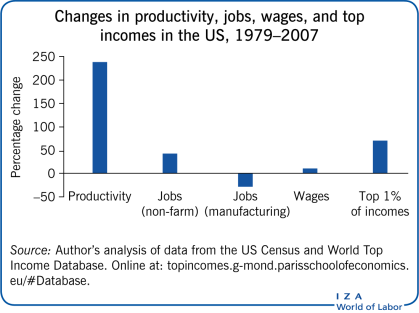Elevator pitch
Globalization and automation have brought about a tremendous increase in productivity, with enormous benefits, but also a dramatic reallocation of jobs, skills, and incomes, which might jeopardize the full realization of those benefits. Current social policies may not be adequate to successfully redistribute the gains from automation and globalization or to advance the reallocation of jobs and skills. Under certain circumstances, an unconditional basic income might be a better alternative for achieving these goals. It is simple, transparent, and has low administrative costs, though it may require higher taxes or a cut/reallocation of other public expenditures.

Key findings
Pros
Unconditional basic income might be an efficient way to redistribute the benefits from automation and globalization.
Since it is not conditional on income, unconditional basic income does not create “welfare traps.”
Unconditional basic income is simple and transparent, with low administrative costs.
Unconditional basic income serves as an efficient buffer against shocks and systemic risks from automation and globalization.
Some evidence from experimental studies suggests that unconditional basic income might have positive effects on labor supply, responsibility, and investment in human capital.
Cons
Unconditional basic income might require higher taxes, or cuts to other public expenditures.
Microsimulation studies suggest that unconditional basic income might reduce labor supply.
Unconditional basic income might lead to a reduction in effort, motivation, and autonomy.
Unconditional basic income also benefits the “undeserving.”